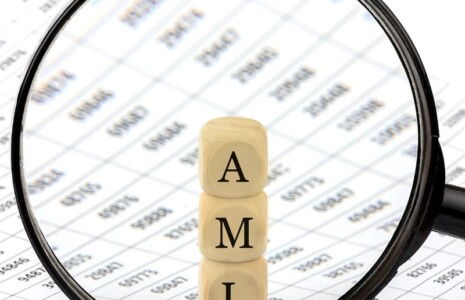How VAT Advice Lines Can Help with Option to Tax Queries
Property transactions often bring up unique VAT questions that can leave even experienced accountants seeking clarification. Between exemptions, partial exemptions, and option to tax (OTT) rules, the financial implications for your clients mean you don’t want to make any rash decisions. In these instances, ICPA’s VAT advice lines offer crucial support, giving accountants access to specialist knowledge so that you can deliver advice confidently.
ICPA’s advice lines are a reliable second opinion offering real-time guidance on complicated OTT scenarios. Whether you’re dealing with lease transfers, mixed-use properties or wondering whether VAT can be recovered on property development, ICPA helps you navigate HMRC’s rules with more clarity, especially when those rules aren’t as clear-cut as they should be.
What Is Option to Tax?
The option to tax is a mechanism that allows a business or property owner to choose to charge VAT on supplies of land and buildings that would otherwise be exempt from VAT. Normally, most property transactions – such as selling land or renting commercial premises – are exempt from VAT. It must be notified to HMRC in writing (usually via form VAT1614A). Once made, an OTT applies to the interest a business holds in a property and generally lasts for at least 20 years, although it can be revoked within the six-month ‘cooling off’ period.
Why opt to tax?
The OTT system was introduced to prevent unfairness in the VAT system (for businesses that incur VAT on substantial property expenses but couldn’t recover it because their supplies were exempt). Opting to tax means the business charges VAT on rent or sale and can recover the VAT they pay on costs like buying, building, renovating, or maintenance.
Common Challenges with the Option to Tax
Electing for standard-rated treatment does create some challenges. For example, the business must charge VAT to tenants (who may not be able to recover it). On top of that, there are grey areas and exceptions – mixed-use properties and residential lettings, partial exemptions, and Transfers of Going Concern (TOGCs). It can be hard to know exactly when the rules apply.
When should OTT be applied?
Businesses developing or purchasing commercial property often assume that VAT recovery will follow automatically, only to discover they need to opt to tax first. For example, one accountant recently queried whether their client could reclaim VAT on building a new commercial property for lease. The advice was clear: without opting to tax, the property’s use is exempt, and they won’t be able to recover VAT on development costs.
The timing of the election is critical – it must be made before any exempt supplies occur. Conversely, a client with a mixed-use property may find that the option to tax creates complications if residential elements are involved, as residential lettings remain exempt regardless of any election made.
Confusion over HMRC rules
Other grey areas include whether OTT applies in Transfers of Going Concern (TOGCs), how it interacts with partial exemption, and when it should be disapplied (such as for residential use). In one advice line query, a caller asked whether a seller’s OTT election affected a property sale where only the lease and fixtures were being transferred. The answer? It depends on whether the buyer has also opted to tax and whether the transfer qualifies as a TOGC.
Although the standard TOGC conditions were met (i.e., continuing the same business with no break in trade), HMRC might decide that the lease and fixtures were insufficient to qualify for the TOGC. HMRC’s guidance on the option to tax contains numerous exceptions and special provisions. Partial exemption rules, capital goods scheme implications, and transfer of going concern (TOGC) conditions frequently create uncertainty.
How VAT Advice Lines Support Accountants
For accountants, the challenge lies in knowing when and whether OTT applies, as well as how to handle the many exceptions and conditions that come with it. When a client asks an urgent question about VAT or a property transaction, there’s often no simple yes-or-no answer. The rules depend on context, and that’s where ICPA’s VAT advice line can support you. Our advice lines give ICPA members instant access to experts who deal with VAT property queries daily. They can help interpret HMRC’s guidance, clarify grey areas, and confirm when certain exemptions or disapplications apply.
The last thing you want is for your client to suffer financial consequences from option to tax errors. Failing to opt can block VAT recovery, while opting when it’s inappropriate can lead to unnecessary VAT charges and disallowed input claims. Professional advice protects you and your client from compliance risks and HMRC scrutiny.
VAT Examples Where Advice Lines Add Value
A lot of property transactions involve unique circumstances that don’t fit standard guidance. Here are some examples…
Residential property rentals exempt from VAT
In another call, a property-owning company with several pubs opted to tax its properties, but had converted one building’s upper floor into residential accommodation. The advice line confirmed that the option to tax would be disapplied for the residential elements and related inputs would not be recoverable. Partial exemption would apply.
Development and investment properties
In another case, a client purchased bare land with the intention of recovering VAT, but had not opted to tax it. The intention was to develop commercial property to lease. We were able to advise that the client would need to OTT the property to recover any VAT; otherwise, the property would be exempt. The advice prevented a costly oversight that would have blocked significant VAT reclaims.
Expert Support When You Need It
When clients ask about the VAT implications of a property deal, they expect expert guidance. Having access to an advice line means you can deliver exactly that.
Option to tax helpline
ICPA’s advice lines give ICPA members the backing of knowledgeable specialists who you can turn to for a second opinion when clients are making big decisions. Instead of spending hours reviewing HMRC guidance or researching VAT rules, you can resolve option to tax queries in a single call with an expert who understands the technical rules and their real-world application. That efficiency translates into better service that protects your clients’ interests and more time to spend on higher-value advisory services.
Become an ICPA member today and gain access to professional VAT advice lines, resources, and guidance tailored to the challenges (and queries) accountants face every day.
Get the latest news direct to your inbox
Sign up to our mailing list to receive weekly bulletins on all of the latest accounting news.
"*" indicates required fields



